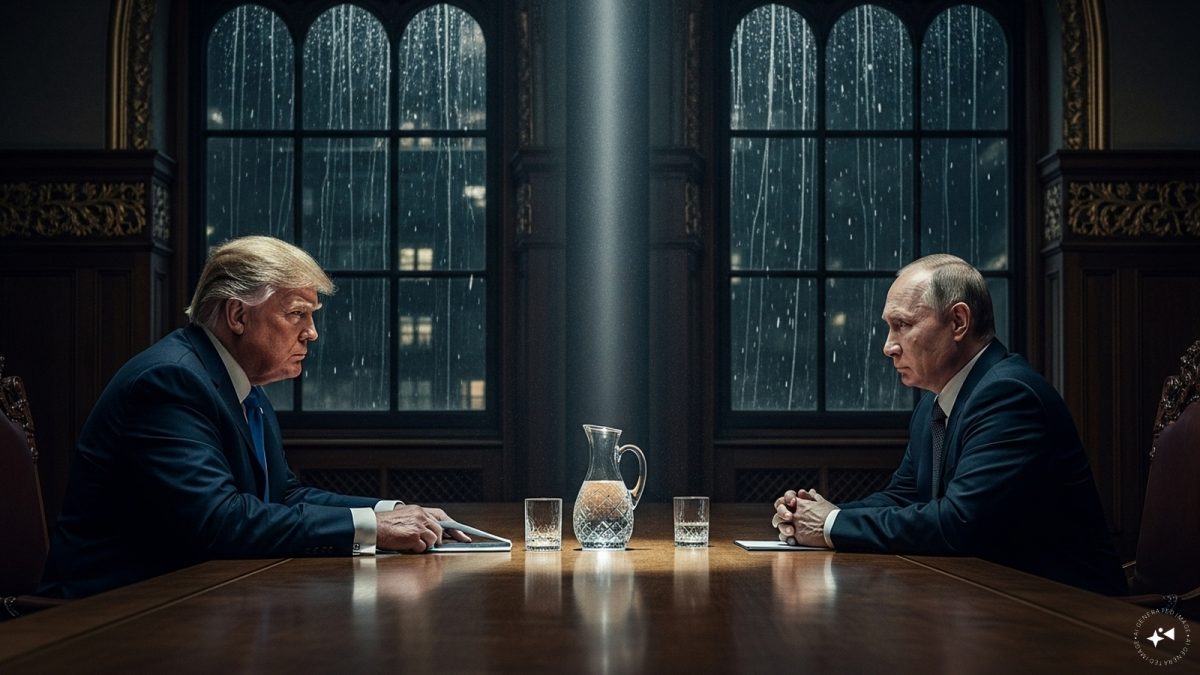

The upcoming summit between U.S. President Donald Trump and Russian President Vladimir Putin in Alaska has drawn global attention, with many speculating about the potential outcomes for the war in Ukraine and the broader European security landscape. However, a significant, yet often understated, factor influencing this meeting is India.
India's role stems from its complex relationship with both the United States and Russia. Historically, India has maintained close ties with Russia, particularly in defense and energy. At the same time, the U.S. has, especially since the end of the Cold War, viewed India as a key partner in the Indo-Pacific region, particularly as a counterweight to China. This balancing act has allowed India to pursue a foreign policy of strategic autonomy, engaging with all major global powers.
Recently, this delicate balance has been tested by the ongoing conflict in Ukraine. As Western nations imposed sanctions on Russia, India continued to purchase Russian oil, albeit driven by its need to ensure energy security for its 1.4 billion people. This decision drew criticism from President Trump, who accused India of "fuelling the Russian war machine". In response, the U.S. imposed additional tariffs on Indian imports, raising them to 50% for many products.
Trump himself has suggested that these tariffs on India "probably" played a role in influencing Putin's decision to meet with him in Alaska. In an interview with Fox News Radio, Trump stated that the tariffs "essentially took them out of buying oil from Russia," and that losing a major customer like India likely had an impact on Putin's calculus. The Ministry of External Affairs of India has endorsed the summit between the United States and Russia in Alaska, which could also decide the course of the tariffs the U.S. has imposed on India.
India's perspective on the Russia-Ukraine conflict is rooted in its long-standing relationship with Russia and its commitment to peaceful resolution of disputes. Randhir Jaiswal, official spokesperson of the Ministry of External Affairs, stated that India stood ready to support peace efforts to end the conflict in Ukraine. India has welcomed the understanding between the United States and the Russian Federation for a meeting in Alaska and stated that it holds the promise of bringing to an end the ongoing conflict in Ukraine and opening up the prospects of peace.
The situation presents both challenges and opportunities for India. On one hand, the tariffs imposed by the U.S. create economic pressure and strain bilateral relations. On the other hand, India's unique position as a nation trusted by both Washington and Moscow could potentially allow it to play a constructive role in de-escalating the conflict in Ukraine. Some analysts believe India is well-positioned to act as a mediator, given its ties to both countries.
Looking ahead, the outcome of the Trump-Putin summit in Alaska could have significant implications for India's foreign policy and its relationships with both the U.S. and Russia. If the summit leads to progress in resolving the conflict in Ukraine, it could alleviate the pressure on India to reduce its purchases of Russian oil, potentially leading to a rollback of the tariffs. Conversely, if the summit fails to yield positive results, the U.S. may continue to pressure India to further isolate Russia, which could strain the traditionally strong ties between New Delhi and Moscow.
In either scenario, India will need to carefully navigate these complex geopolitical currents to protect its own interests and maintain its strategic autonomy. As the world watches the events unfolding in Alaska, the "big India factor" will undoubtedly continue to play a significant role in shaping the dynamics of this high-stakes summit.